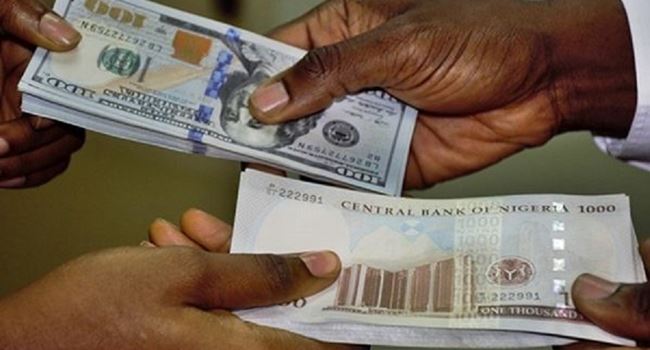According to statistics from the FMDQ FX platform, the Nigerian naira exchange rate suffered from foreign currency demand pressures during the first trading day of 2024, and traded at N988.46 per US dollar on Tuesday.
Despite government efforts to minimize the disparity between official and parallel market prices, the exchange rate is not likely to improve in 2024. Despite the fact that there has been no notable positive adjustment in the local currency’s fate, value, or market weight, a number of FX analysts anticipate the naira will exceed N1,000 at Nigeria’s Autonomous Foreign Exchange market in the first quarter of the year.
The exchange rate passed the red line in 2023, as demand for foreign currency continued to exceed supply due to the strength of the US dollar scarcity in the economy. Trying to redirect exchange rate policy, the central bank was absent in the official market to support the naira from free falling due to large unmet FX demand logged by manufacturers, importers and other invisible forex users.
In the foreign currency market, the Naira fell 8.97% to N988.46 per US dollar, down from N907.11 at the previous close. In the parallel market, the Naira finished at N1,210 per US dollar, despite weak demand for foreign currency from local manufacturers and other customers.
In the global commodities market, oil prices continue to fluctuate. Brent Crude rose by 0.29% to $77.26 per barrel yesterday, while WTI fell by 0.01% to $71.64 per barrel at the start of the year on Tuesday.
Nigeria’s foreign reserves increased to $32.91 billion, equivalent to seven months of imports for a country that relies largely on imported goods to exist. During the oil boom, the nation was unable to accumulate foreign reserves.
Oil production went down significantly before it started to pick up in the second quarter of the year. Nigeria also engaged in oil-swapping deals.
In 2023, Olayemi Cardoso, Governor of the Central Bank of Nigeria (CBN) said new foreign exchange guidelines and legislation will be developed, and extensive consultations will be conducted with banks and FX market operators before implementing any new requirements.












